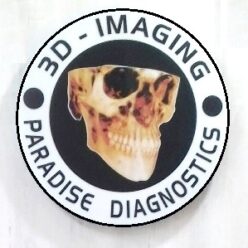Oral pathology is a branch of dentistry that deals with the study, diagnosis, and management of diseases and disorders affecting the oral and maxillofacial regions. Oral pathology encompasses the identification and understanding of various conditions that can manifest in the mouth, jaws, salivary glands, and related structures. Dentists who specialize in oral pathology are referred to as oral pathologists.
Key aspects of oral pathology include:
Diagnosis of Oral Diseases:
Oral pathologists are trained to diagnose a wide range of diseases and conditions affecting the oral cavity and surrounding structures. This can include infections, inflammatory disorders, developmental abnormalities, and neoplastic (cancerous and non-cancerous) lesions.
Biopsy and Histopathology:
When a suspicious lesion or abnormality is detected in the oral cavity, oral pathologists often perform biopsies to obtain tissue samples. These samples are then analyzed under a microscope (histopathology) to determine the nature of the lesion and assist in making a definitive diagnosis.
Dental Radiology:
Oral pathologists may use various imaging techniques, including dental radiographs and advanced imaging modalities like Cone Beam Computed Tomography (CBCT), to visualize and assess abnormalities in the oral and maxillofacial structures.
Management and Treatment Planning:
After a diagnosis is made, oral pathologists work with other dental specialists and healthcare professionals to develop treatment plans for managing oral diseases. This may involve surgical interventions, medical treatments, or a combination of approaches.
Oral Cancer Screening:
Oral pathology plays a crucial role in the early detection and screening of oral cancers. Regular oral examinations, including visual inspections and palpation of tissues, are part of routine dental check-ups to identify potential signs of malignancy.
Salivary Gland Disorders:
Oral pathologists assess and manage conditions affecting the salivary glands, including inflammation, infections, and tumors.
Genetic and Developmental Disorders:
Some oral pathologies are associated with genetic or developmental factors. Oral pathologists may diagnose and manage conditions such as cleft lip and palate or hereditary dental anomalies.
Autoimmune and Immunologic Disorders:
Certain conditions affecting the immune system can manifest in the oral cavity. Oral pathologists are involved in the diagnosis and management of autoimmune and immunologic disorders that impact oral health.
Infectious Diseases:
Oral pathologists may deal with various infectious diseases affecting the oral and maxillofacial regions, including viral, bacterial, and fungal infections.
Regular dental check-ups and screenings are important for the early detection of oral diseases, and oral pathologists work collaboratively with general dentists and other specialists to provide comprehensive care to patients.
